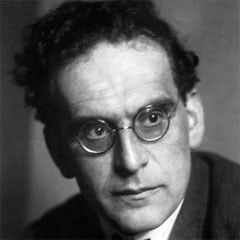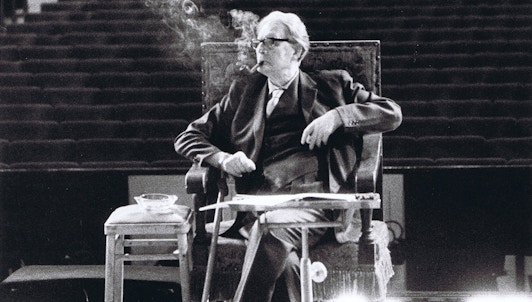In 1924, he went to Wiesbaden in the same function, and in 1927 to the Kroll Opera in Berlin where he particularly supported contemporary music and found international acclaim with his many first performances. During his era in Wiesbaden, Oedipus Rex by Igor Stravinsky (1928) and Neues vom Tage by Paul Hindemith (1929) were premiered; he conducted the Berlin premieres of Erwartung by Arnold Schoenberg, Cardillac by P. Hindemith and Z mrtveho domu by Janacek. After the closure of the Kroll Opera in 1931, Klemperer went to the State Opera before emigrating from Germany in 1933. Still in the same year, he took over conducting the Los Angeles Philharmonic Orchestra (until 1939); from 1937 to 1938, he also conducted the Pittsburgh Symphony Orchestra. He studied composition under A. Schoenberg. In 1939, he was operated on for a brain tumour and remained partially paralysed.
Otto Klemperer continued the tradition of the great 20th-century German conductors and was above all influenced by Gustav Mahler. His renditions are remarkable for their major dramatic strength. Apart from the opera premières already mentioned, he conducted Konzert fur Bratsche und Orchester by Paul Hindemith (1927), the Begleitmusik zu einer Lichtspielszene (1930) and the Suite für Streichorchester (1935) by A. Schoenberg for the concert hall. As a composer, we are indebted to him for an opera, six symphonies, a mass, chamber music and song compositions.


